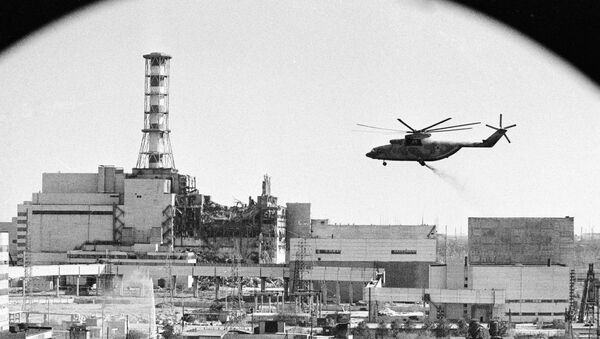The devastating Chernobyl disaster, which happened on 26 April 1986 as a result of an explosion at nuclear reactor Number Four of the power plant near the river Pripyat in Soviet Ukraine, was paradoxically good for the environment, a shocking UN report in the UN Chernobyl Forum’s paper titled “Chernobyl's Legacy: Health, Environmental and Socio-economic Impacts” has it as cited by The Daily Star.
The arguably positive effects are assumed to have to do with the recovery of affected biota in the Exclusion Zone being facilitated by “the removal of human activities” there, such as termination of agricultural and industrial activities. The report has linked the latter with the subsequent expansion of populations of a whole range of plants and animals, thereby accounting for an unprecedented biodiversity, which the exclusion zone has now become a sanctuary for, despite the severe immediate effect of the accident, which, according to a recent estimate, has led to a possible additional 39,000 cancer deaths worldwide.
In plants and animals that were within 20-30 kilometres’ proximity to the reactor, there was registered a high dose of radiation, leading to death and diverse anomalies in plants and animals. Over the years, however, the adverse effects have decreased, with more biological species flourishing in the new conditions.
READ MORE: WHY is Spain Spending Over €1Mln on Power Plant in Chernobyl?
Last but not least, the disaster also prompted many to change their general attitude to nuclear power and safety, adopting a new rhetoric with this regard: for instance, Italy embarked on a project to phase out nuclear energy in the country in the wake of the accident, although this was eventually ditched by the government in 2008, although a 2011 referendum showed that people would prefer the government to continue in its effort.
In a parallel move, the blast prompted Germany to set up a federal Environment Ministry in the country, which has since seen the strengthening of the anti-nuclear movement and eventually ended the use of nuclear power made under Gerhard Schroder.
26 April marked the 33rd anniversary of the Chernobyl disaster, which occurred in northern Ukraine at the height of the Cold War, when the world was horrified over the prospect of a nuclear apocalypse. As people in the quarantined area fell victim to radiation poisoning, the number of deaths ranged from 4,000 to 200,000, with over 100,000 people being evacuated from the Exclusion Zone.
The accident happened during a late-night safety test, which simulated a blackout and power failure, during which both emergency safety and power-controlling systems were purposefully switched off.




